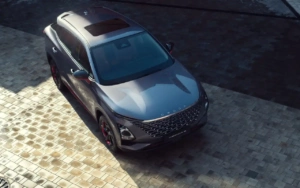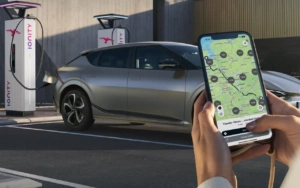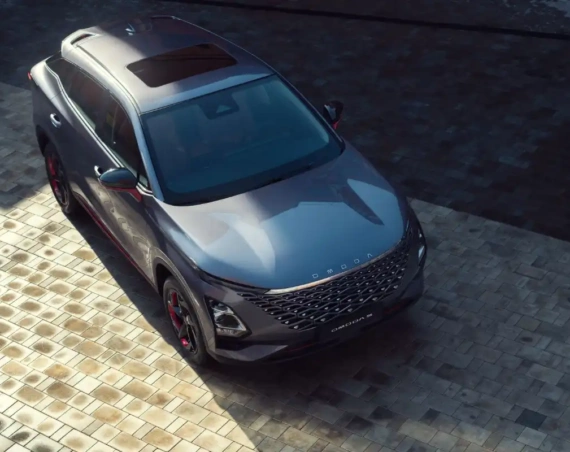BUSINESS fleets are driving the adoption of electric vehicles in the UK, according to The Future of Transport Index – a new report by Lex Autolease.
This may not come as much of a surprise to leasing brokers who are seeing plummeting demand for personal leasing balanced by rising demand for business contract hire and salary sacrifice.
But it’s an important report because The Future of Transport Index is a new quarterly analysis of the sector by the funder Lex Autolease, including private vehicles, public transport and active travel, like walking and cycling.
The report surveyed 100 business fleet managers with fleets of more than 100 cars and more than 1,500 drivers in a move to better understand how travel is changing.
The report also introduces a new measure which uses a unique data set to track the level of confidence in different transport technologies each quarter and reveal how attitudes towards different transport technologies are evolving among fleet managers and drivers.
Attitudes to electric
Underpinning the changes is the switch from petrol and diesel-powered vehicles to electric and hybrid models.
The report found that business fleets are leading that charge with 44% of fleet cars already being electric, compared with just 4% of privately-owned vehicles.
Firms are investing an average 7% of turnover in fleet electrification as they work towards the UK’s 2030 net zero target, when the sale of new petrol and diesel-powered cars will be banned.
Two thirds (66%) of businesses have grown the number of electric vehicles in their fleet in the last year, and the same proportion (67%) expect to grow the number of electric vehicles in their fleet in the year ahead, by an average 19%.
Reasons for going electric include its important for employee engagement and recruitment (75%), to hit sustainability targets (67%), and because it supports sustainability credentials (57%).
And the current cost-of-living challenges don’t appear to have driven them off course; almost half (45%) of fleet managers said they had increased their investment in adopting electric vehicles as a result, with just 2% saying it had caused them to cut back.
Future of Transport Index
But despite record numbers of electric vehicles entering the UK’s roads, the new Future of Transport Index, which tracks the level of confidence in different transport technologies on a scale from -50 to +100, reveals confidence is actually highest in petrol vehicles, which have an Index score of 42.
Hybrid vehicles followed with an Index score of 32, with electric vehicles close behind at 31. Diesel vehicles were given an Index score of 13.
Calculated by analysing the latest vehicle figures from Lloyds Banking Group’s motor finance and leasing brands, Black Horse and Lex Autolease, alongside data collected from more than 1,500 private car drivers, the Index runs from -50 to +100, where -50 means confidence in that fuel type is at its lowest, while +100 indicates confidence is at its highest.
Nick Williams, transport managing director at Lex Autolease, said: “Transport is fundamental to the transition to net zero and it’s going to take a collective effort across the industry as a whole to get to where we need to be.
“Looking at the progress already being made to electrify business fleets gives me confidence that this is eminently achievable, especially as the cost of purchase continues to fall and more electric vehicles enter the second-hand market, which should help speed up their adoption by private drivers.
“The aim of the new index is to understand how travel is changing, and the implications for the environment, the economy and even the nation’s health and wellbeing.
Lex Autolease is the largest leasing company in the UK according to the FN50 and currently manages more than 300,000 vehicles.

Octopus Energy and Omoda partner for electric driving service
Octopus Energy Group and Omoda partner for electric drivers in the UK while Octopus Electric Vehicles is the preferred leasing partner

Broker News Newsletter 30 April 2024
Catch up on the latest leasing broker news in the 30 April 2024 Broker News newsletter

April 2024 used market volumes rise as seasonal trends return reports cap hpi
In a return to seasonal norms, April used car market saw average car values at the three-year, 60,000-mile point, according to cpa hpi

UK fleets show optimism: growth expected despite economic challenges
Thirty-eight percent – nearly two in five UK car and van fleets – are predicting growth in the number of vehicles they operate

Alpha Contracts Leasing celebrates 27 years in business
Leasing broker Alpha Contracts Leasing has just celebrated 27 years trading – set up in 1997 by co-owners Lynette Randall and Samantha Miles

Select Fleet Solutions – Eton celebrates 25 years
Select Fleet Solutions – Eton Office, formerly Benchmark Leasing, is celebrating 25 years in the leasing broker sector



